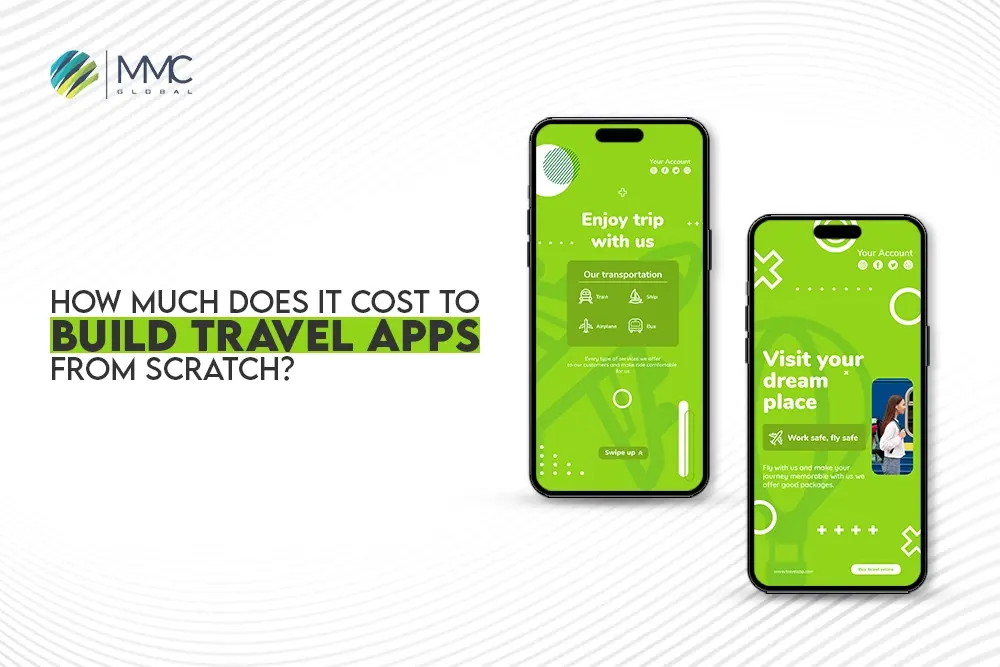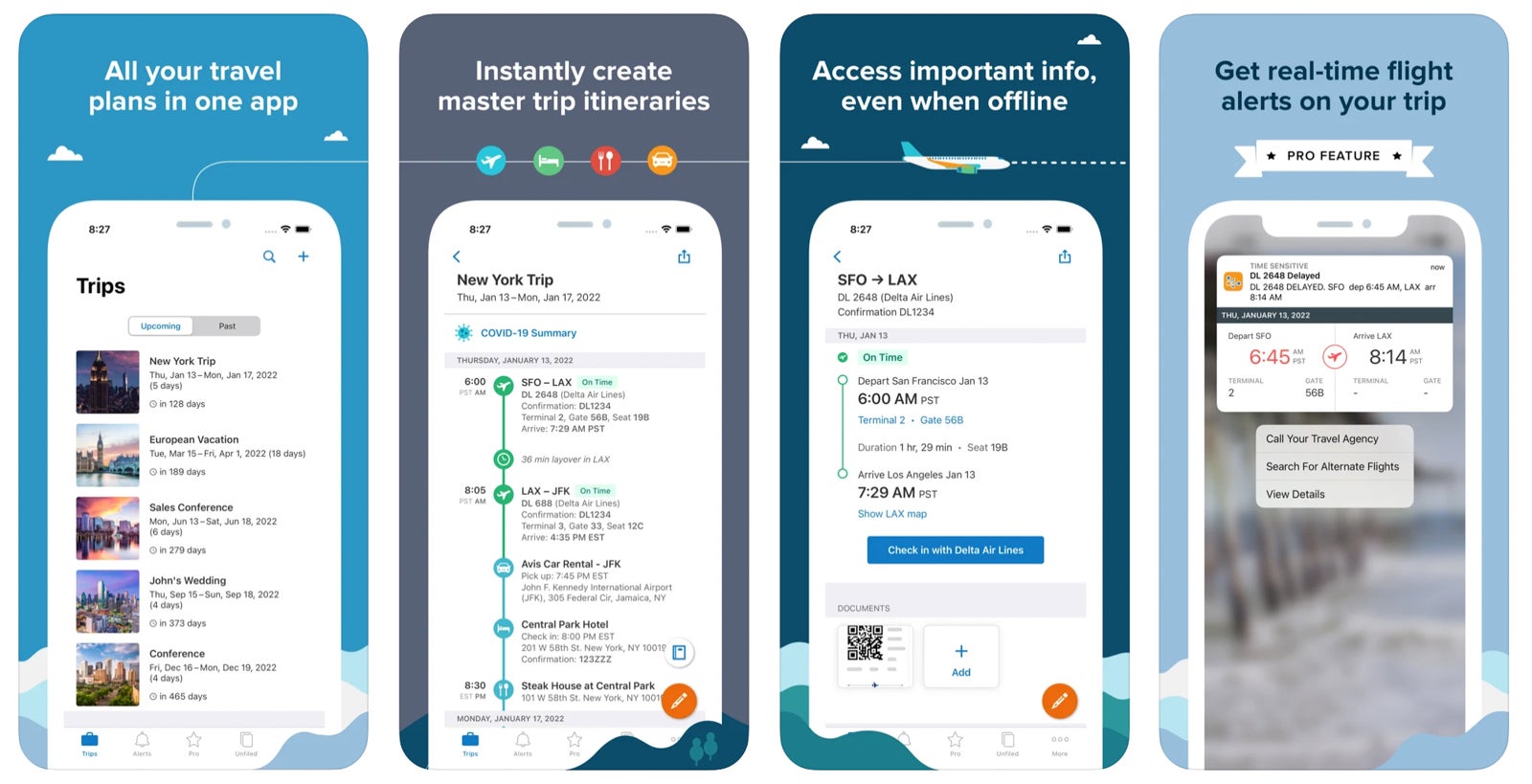How Much Does It Cost To Build Travel Apps From Scratch?


We call out all travel and hospitality industries to reshape your travel management and operations functions. There are a number of destinations where millions of people plan to enjoy vacation or organize corporate travel to escape routine life. In fact, travel businesses run almost throughout the year, and it is undeniable that travel apps are necessary to allocate maximum opportunities.
If you are searching for affordable travel apps to streamline your business function and deliver a hassle-free traveling experience, this blog is for you. This blog will give you a brief overview of travel app development and the cost estimation for your budget.
There are many mobile app development companies around the globe, but there are a few that you can trust who can only think about your interests and your budget. At MMC Global, we are proud partners of leading companies and help establish emerging businesses. We help businesses ensure they get a custom mobile app that meets their business requirements by keeping their budget in mind.
However, travel mobile app development cost in US is between $100,000 and $300,000, but it also depends upon customization and other variables.
Let’s dive deeper to learn more about travel app development and break down costs with different aspects.
How Travel Apps Can Create A Big Difference
First and foremost, there are many types of travel apps, including travel management apps, booking apps, on-demand travel apps, accommodation apps, and much more. In fact, it depends on what you need to fulfill your business requirements.
All of these apps have one major role: to improve people’s traveling experience. Tourists are new in a particular country or state; they have to be guided properly to enjoy hassle-free.

However, you surely belong to the travel industry searching for suitable travel apps for your business. Have a look at different types of travel apps that might match your needs:
Travel Planning Apps
It helps users plan their trips by providing information on flights, hotels, car rentals, and activities. Popular travel planning apps include Google Trips, Kayak, and Skyscanner.
Accommodation Booking Apps
Accommodation booking apps allow users to book hotels, hostels, and other types of accommodation. Popular accommodation booking apps include Booking.com, Expedia, and Airbnb.
Transportation Apps
With the help of transportation apps, users get around their destination by providing information on public transportation, taxis, and ride-sharing services. However, Google Maps, Uber, and Lyft are the best examples of transport apps.
Activity Booking Apps
Activity booking apps allow users to book tours, activities, and attractions. Popular activity booking apps include GetYourGuide, Viator, and Klook.
Travel Guide Apps
It provides users with information about their destination, including points of interest, restaurants, and shopping—for example, apps like Lonely Planet Guides, TripAdvisor, and Foursquare.
Currency Converter Apps
It helps users convert their currency to other currencies. Popular currency converter apps include XE Currency Converter and MyCurrency.
Communication & Translation Apps
Translation apps help users translate text between different languages. Google Translate and iTranslate are vital in communicating with foreigners to understand their needs.
Packing Apps
Users pack for their trips by providing lists of items to pack based on the destination and activities planned. In fact, packing apps, including PackPoint and TripList, have immense demand in the travel industry.
Understanding the Landscape
Before diving into the costs, it’s essential to understand the travel app landscape. Travel apps serve a wide range of purposes, from flight and hotel booking to itinerary planning and destination guides. However, some popular travel apps include Airbnb, Expedia, TripAdvisor, and Airbnb.
To build a successful travel app, you must consider the following aspects:
Platform: Will the app be developed for iOS, Android, or both?
Features: What features will the app offer, such as flight and hotel bookings, geolocation services, and user reviews?
Design: A visually appealing and user-friendly design is crucial.
Database and Backend: Storing and managing vast amounts of travel data.
Security: Travel apps handle personal and financial information, requiring robust security measures.
Third-Party Integrations: Integrating APIs for services like Google Maps, weather forecasts, and payment gateways.
Factors Influencing the Cost
App Development Team
The cost of hiring skilled app developers can vary depending on their experience and location. In-house developers are typically more expensive than outsourcing. Moreover, Graphic and UX/UI designers play a crucial role in creating an attractive and user-friendly app. To make everything streamlined, a dedicated project manager must ensure that the project runs smoothly and within budget.
Mobile App Platform
You have 3 options to choose your app platform, i.e., Android, iOS, or cross-platform app. Developing an app for iOS and Android will be more expensive than targeting a single platform. Cross-platform development tools can help reduce costs by allowing the app to run on both platforms with the same set of codes.
App Features
The more features you want to incorporate, the higher the cost. Consider essential features like user profiles, booking systems, and geolocation services. However, advanced features like augmented reality, virtual tours, and AI-powered recommendations will increase costs.
App UI UX Design
A visually appealing app is crucial for user engagement. Design costs will depend on the complexity and intricacy of the interface or other design elements, such as animation.
Database and Backend
Storing, managing, and updating travel data can be costly. Cloud-based solutions can help manage expenses.
Third-Party Integrations:
Integrating external APIs can add both development time and costs. Popular integrations include payment gateways, maps, and weather services.
Testing and Quality Assurance
Extensive testing is necessary to ensure the app is bug-free and user-friendly. Testing can be time-consuming and may increase costs.
Maintenance and Updates
Post-launch apps require maintenance and periodic updates to stay relevant and secure.
Read more: Top 8 Transport Mobile Apps in the USA for Easy Commuting
How Much Does It Cost To Build a Travel App?
The cost of travel app development from scratch can vary widely depending on a number of factors, including:
- The features and functionality of the app
- The complexity of the app’s design
- The experience and location of the development team
- The platform(s) the app will be developed for
In general, you can expect to pay between $100,000 and $300,000 to develop a travel app with basic features and functionality. The cost could go up to $500,000 or more for a more complex app with more features.
Here is a breakdown of the estimated costs for each stage of the travel app development process:
- Design: $10,000-$20,000
- Development: $50,000-$200,000
- Testing: $10,000-$20,000
- Deployment: $5,000-$10,000
If you are on a tight budget, you may want to consider developing a minimum viable product (MVP) first. An MVP is a basic version of your app with just the core features. This can be a good way to get your app into the market quickly and cheaply and to gauge user interest before investing too much money in development.
[Nasir-hu-mein heading=”Build Smart Business Travel Apps By Professionals” para=”Our highly professional builds your travel app with futuristic technologies and exceptional features. Be ready to get the maximum ROI of your investment!”]Ending Notes
Building a travel app from scratch involves a combination of factors influencing the overall cost. The key to success is striking the right balance between features, design, and security while staying within your budget. Before embarking on this journey, it’s essential to define your app’s objectives, understand your target audience, and carefully plan your budget. By doing so, you can create a travel app that not only meets your users’ needs but also aligns with your financial expectations.



